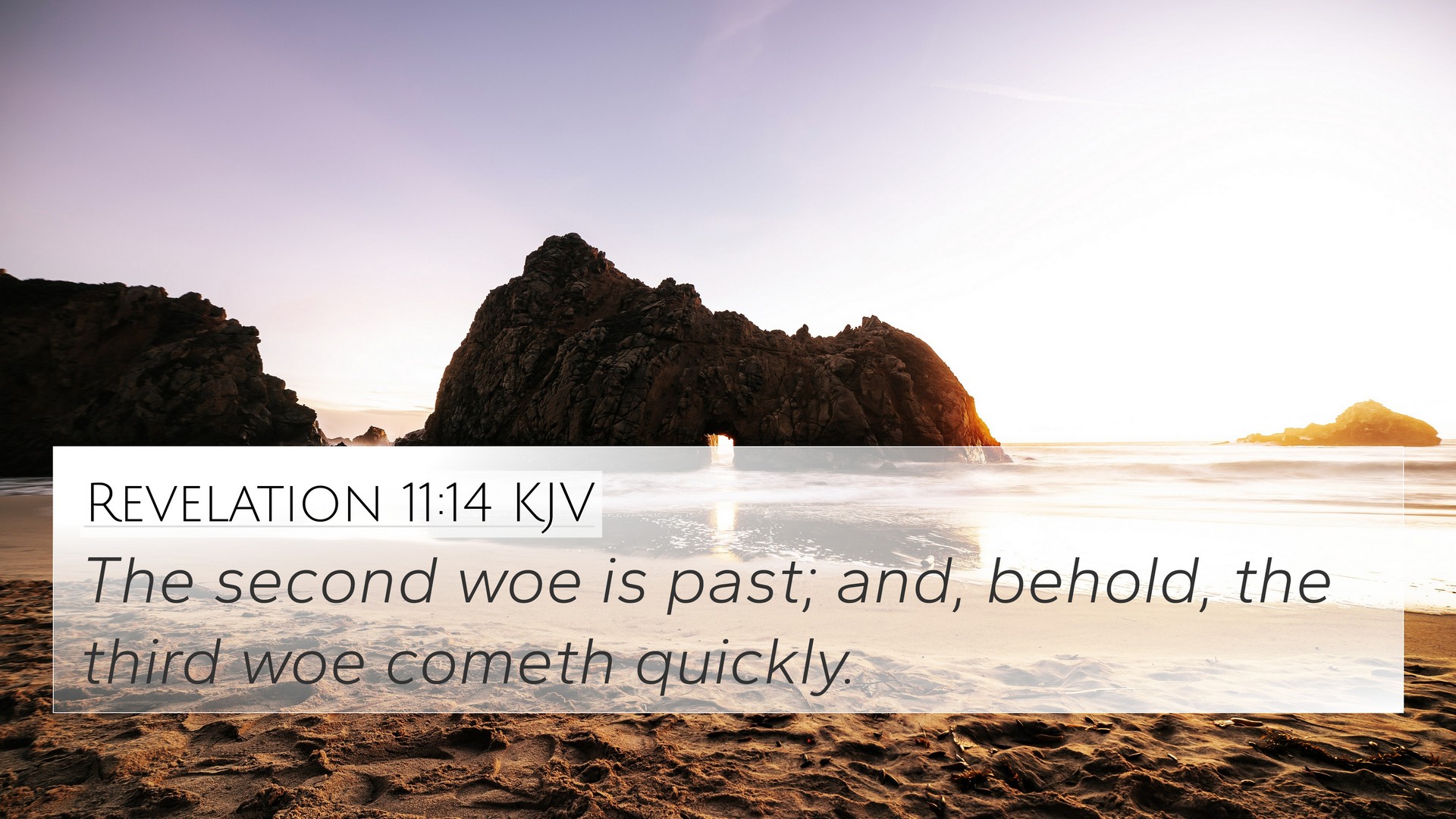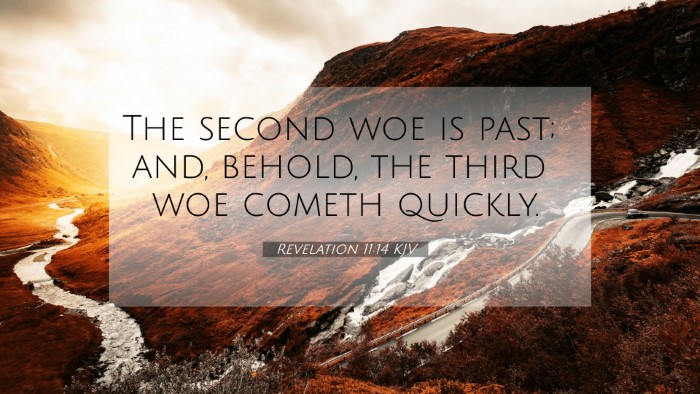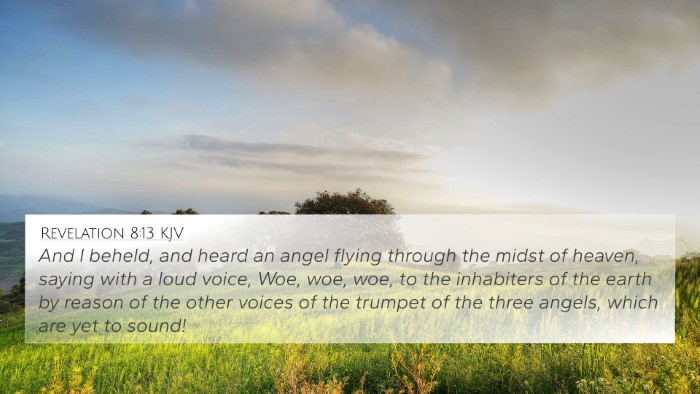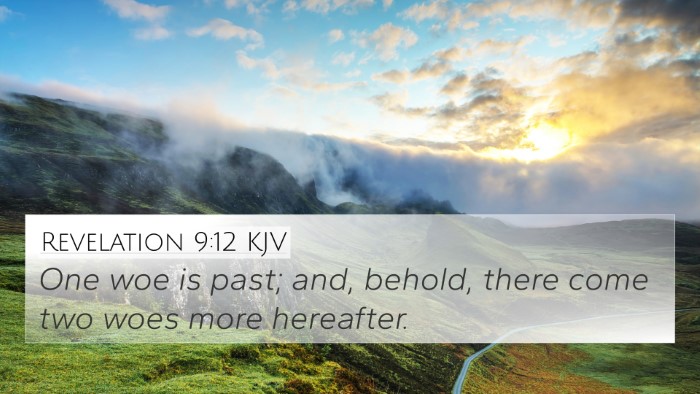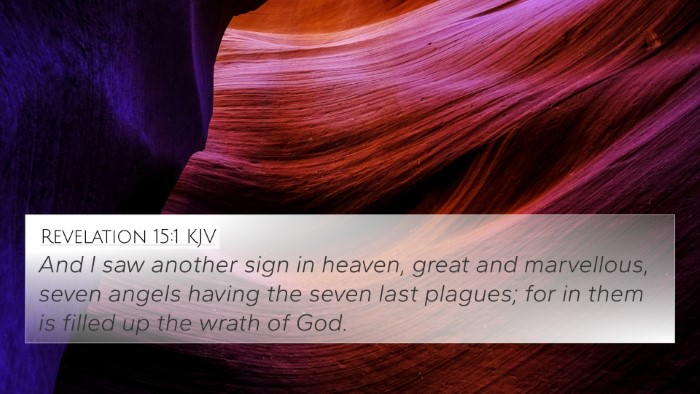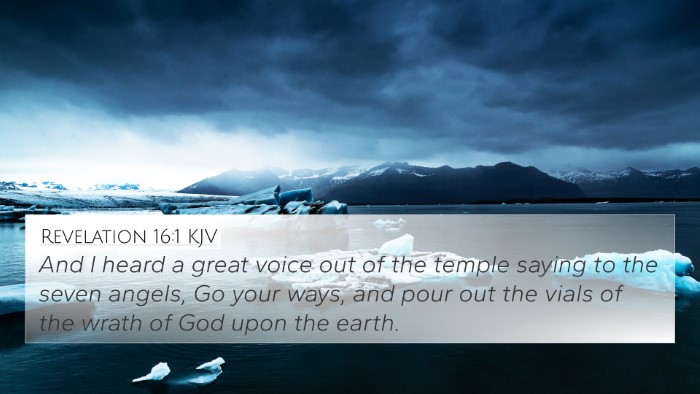Understanding Revelation 11:14
Verse: Revelation 11:14 states, "The second woe is past; and, behold, the third woe cometh quickly."
Summary of Meaning
This verse serves as a transition point in the Book of Revelation, indicating the conclusion of the second woe and the imminent arrival of the third woe. It encapsulates the themes of divine judgment and the unfolding of prophetic events, inviting the readers to contemplate the seriousness of the forthcoming judgments.
Commentary Insights
Matthew Henry's Commentary
Matthew Henry emphasizes that the mention of “woe” denotes serious calamity and divine displeasure. In his analysis, he points out that the progression from the second woe to the third signifies an escalation in both the intensity of God's judgment and the urgency of calling individuals to repentance. This foreshadowing of the third woe highlights that God's plans are meticulous and that nothing escapes His sovereign timing.
Albert Barnes' Notes
Albert Barnes focuses on the implications of the transition between woes. He interprets this as an indication of the final judgments that will culminate in the end times. Barnes underscores the importance of understanding the previous judgments (the first and second woe) as interpretations of divine justice being enacted on the Earth. He suggests that this verse is a reminder to remain vigilant and prepared for the coming of God's final retribution against evil.
Adam Clarke's Commentary
Adam Clarke provides insights on the symbolism behind the woes. He notes that the declaration of the second woe being past and the third impending serves as a literary device to build suspense among believers. Clarke’s interpretation encourages Christians to find hope in the assurance that God's ultimate victory is approaching. He also points to the significance of the timing, indicating that the events must transpire according to God’s predetermined plan.
Key Themes
- Divine Judgment: The concept of God’s judgment is central in this verse, pointing toward the serious ramifications of turning away from Him.
- Prophetic Fulfillment: The transition from the second woe to the third reflects God's unfolding plan as revealed through prophecy.
- Urgency of Repentance: The imminent nature of the third woe invites reflections on personal preparedness and repentance.
- Hope amidst Judgment: Though the message is one of warning, it also carries a note of hope for believers awaiting redemption.
Bible Verse Cross-References
To understand the interconnectedness of Revelation 11:14, consider these related verses:
- Revelation 9:12: The first woe is described, emphasizing the sequences of judgments.
- Revelation 11:1-2: These verses discuss the measuring of the temple, signifying God's protection over His people amidst tribulations.
- Matthew 24:21: Jesus speaks of great tribulation, paralleling the calamities addressed in Revelation.
- Luke 21:22: Acknowledges the times of distress as fulfillment of prophetic events.
- Revelation 11:15: The announcement of God's kingdom coming to fruition aligns with the thematic elements of woe and judgment.
- Revelation 6:16-17: Highlights the severity of God's wrath, linking to the series of woes.
- Isaiah 34:1-3: The prophecies of judgment in the Old Testament reflect similar themes of divine retribution and hope for renewal.
Thematic Bible Verse Connections
Revelation 11:14 connects with the broader themes in Scripture, illustrating God's justice and mercy:
- Biblical prophecy emphasizes the certainty of God's plans, as seen in Jeremiah 30:24 where the counsel of the Lord is rendered inevitable.
- Linking to the promises of the New Covenant in Hebrews 8:12, believers are assured of God's enduring mercy as judgments unfold.
- The concept of woe is reminiscent of warnings found in Ezekiel 33:11, where God desires the wicked to turn from their evil ways.
Cross-Referencing Biblical Texts
Using tools for Bible cross-referencing and analysis can yield deeper understanding:
- A Bible concordance can help locate verses related to woes and tribulations.
- Engaging in cross-reference Bible study allows insights into the thematic parallels.
- Understanding the inter-Biblical dialogue fosters appreciation for both Old and New Testament teachings.
- Utilizing a comprehensive Bible cross-reference guide can enhance study methods and thematic exploration.
Final Thoughts
The exploration of Revelation 11:14 and its place within the greater narrative of Scripture invites serious reflection on God's sovereignty, judgment, and promises. It emphasizes the necessity for believers to engage thoughtfully with biblical texts, making use of linking Bible scriptures and employing cross-referencing methods to develop a rich, contextual understanding of God's Word.
